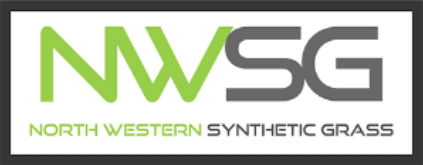As the world grows increasingly conscious about environmental sustainability, businesses are looking for innovative ways to reduce their carbon footprint and contribute to a greener planet. One such solution gaining popularity among commercial property owners is the installation of artificial turf.
This eco-friendly alternative to natural grass offers a host of benefits, not just in terms of maintenance and aesthetics but also in terms of environmental impact. In this blog post, we will explore the eco-friendly benefits of choosing artificial grass for your commercial property.
1. Water Conservation
One of the most significant environmental benefits of artificial turf is the substantial reduction in water usage. Natural grass requires regular watering to stay green and healthy, especially during the hot summer months. This can lead to a strain on water resources, particularly in areas facing water scarcity.
By choosing synthetic turf, you eliminate the need for regular watering, saving thousands of gallons of water every year. This benefits the environment and leads to significant cost savings for your business in terms of reduced water bills.
2. Reduced Use of Chemicals
Maintaining natural grass requires the regular application of fertilizers, pesticides, and herbicides. These chemicals can have detrimental effects on the environment, polluting water sources, and harming wildlife. They also contribute to the emission of greenhouse gasses, such as nitrous oxide, which is 300 times more potent than carbon dioxide as a greenhouse gas.
Artificial grass does not require chemicals for maintenance, making it a more environmentally friendly option. By installing artificial turf for your commercial property, you are actively reducing the use of harmful chemicals and their associated environmental impact.
3. Lower Carbon Emissions
The maintenance of natural grass involves the use of gas-powered equipment, such as mowers, trimmers, and blowers. These machines emit harmful greenhouse gasses that contribute to global warming and poor air quality. In addition, the production and transportation of the chemicals used in natural grass maintenance also contribute to carbon emissions.
On the other hand, artificial turf requires minimal maintenance, eliminating the need for gas-powered equipment and the associated carbon emissions. As a result, choosing artificial grass can help you significantly reduce your overall carbon footprint.
4. Improved Stormwater Management
Soil erosion is a significant environmental concern, as it can lead to water pollution and the loss of fertile soil. Real grass landscapes can often struggle to absorb heavy rainfall, leading to stormwater runoff that can carry pollutants into nearby water sources. This can lead to water pollution and issues with local water management infrastructure.
Commercial artificial grass is designed to be permeable, allowing water to pass through quickly and efficiently. This helps to reduce stormwater runoff and the associated pollution risks. Moreover, artificial turf systems often include a layer of crushed stone or other permeable materials that can help filter pollutants from the water before it enters the groundwater system.
5. Reduced Waste Production
Plants, such as grass, require regular maintenance, including mowing, trimming, and removal of dead grass and leaves. This generates significant amounts of green waste, which can end up in landfills, contributing to methane emissions and other environmental problems.
Modern synthetic grass products are made from recycled materials, such as crumb rubber from used tires, which helps to divert waste from landfills. You also eliminate the need for regular maintenance and the associated waste production. You can easily remove any debris on the turf without generating significant amounts of waste.
Additionally, high-quality artificial turf has a long lifespan, often lasting 15 to 20 years or more with proper care and maintenance. This means that you will need to replace your turf less frequently, reducing the amount of waste generated by your landscaping efforts.
Conclusion
Installing artificial turf for your commercial property not only enhances its aesthetic appeal and reduces maintenance costs but also offers significant environmental benefits. By conserving water, reducing the use of chemicals, lowering carbon emissions, improving stormwater management, and lessening waste production, artificial turf is a nonpolluting solution that contributes to a greener and more sustainable future.
As businesses continue to prioritize environmental responsibility, synthetic grass presents an excellent opportunity to make a positive impact on our planet.
If you’re looking to invest in artificial grass for your commercial property, North Western Synthetic Grass can install it for you in Vancouver, Burnaby, Surrey, Langley and throughout the Fraser Valley. Our grass is precisely custom-cut to fit your needs and installed with a touch of perfection. All our products come with a 10-year limited warranty and 100% customer satisfaction.








